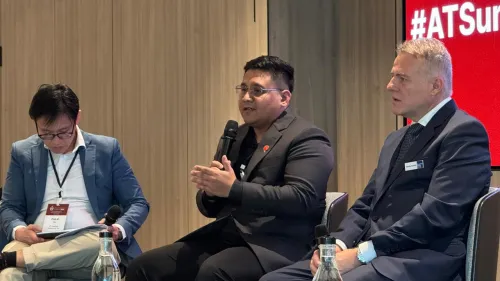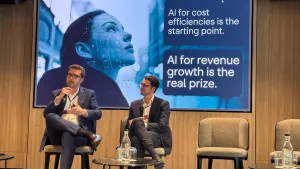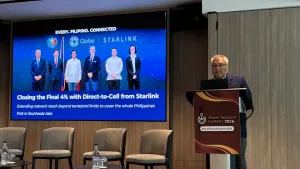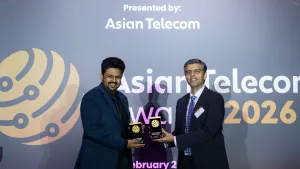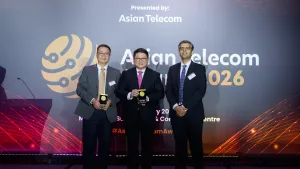
8 in 10 telco leaders say talent is most crucial for ‘techco’ transformation
Telcos continue to lag behind tech companies from a talent perspective.
Eighty percent of telco leaders say talent is most crucial for the ‘telco to techco’ transformation, a shift from traditional connectivity to customer-centric and platform-oriented, according to McKinsey and Co.
Despite this, telcos continue to lag behind tech companies from a talent perspective, widening the gap. In 2018, the share of telco workers was nine percentage points below the share of workers in consumer tech, but that deficit grew to 11 percentage points in 2022.
“To close the skills gap and maximise effectiveness in navigating the telco-to-techco transformation, telcos will need to make changes across all four dimensions of the talent challenge,” McKinsey said.
Leaders said that telcos need to reframe the industry's narrative to present telecommunications as a high-potential, innovative sector. Additionally, they should treat candidates like customers, optimising their hiring experience and focusing on values over experience.
McKinsey also said that telcos have not adapted to meet new hiring standards. Telcos would do well to follow tech companies in treating candidates like customers, optimising their experience at every stage.
Telcos must also consider making greater efforts to hire and genuinely welcome non-industry talent as it can open the door to underexplored talent pools.
Another strategy is to change the criteria for evaluating candidates. One leader suggested that telcos hire for values, rather than experience, adopting a practice common to Big Tech players.
Prior McKinsey, research has found that this sought-after pool now assigns equal weight to career development and compensation. However, few telcos are investing in creating portfolios of innovative career development opportunities.
Across industries, leading companies have developed multiple career paths tailored to employees’ strengths and ambitions. Expert tracks allow tech leaders to grow and progress without having to manage teams directly.
Similarly, telco leaders expressed the importance of increasing internal mobility. One interviewee advocated for “assigning people on short-term missions to enable quicker results.”
Flexibility can also be a powerful lever for retention. One tech giant reduced attrition by 30% within certain talent pools by creating a dynamic people staffing model to identify and bolster overworked teams.
Changing the culture of an organisation requires engaging with the entire talent pool. McKinsey shared some mindsets that telcos may want to embed in their cultures.
The culture of the telco industry is afraid of risk taking and this will have serious ramifications like slow decision-making processes. Intentional efforts to encourage risk-taking can shift this mindset over time. For example, a digital bank in Asia has a dedicated “failure budget”: each year, money is allocated toward radical projects that will probably fail.
Moreover, one executive posited that telcos’ biggest cultural challenge is breaking the system and fostering trust.
To address this, McKinsey said that cross-functional teams reassembling allows workers to learn from each othe. This flexibility is coupled with robust performance management systems so that low performers do not slip as they move teams. For example, a tech unicorn in Southeast Asia rotates employees and collects 360 feedback from all stakeholders.
As telcos reorient their operating models around customer-centricity, rather than products, McKinsey urges telcos to take note of the following levers.
Streamlining and clarifying decision making can be a particular challenge in an organisational shift. A European telco realised it was slowed down by a lack of clarity on who had the final say. It was resolved when the team agreed that the chief customer officer take on the central decision-making role.
Because telcos still tend to organise their teams by product rather than customer-oriented dimensions, they often struggle to provide authentic customer-centric experience. By organising marketing teams around customer segments, telcos can transcend internal competition and prioritise the customer experience.
Employees’ performance incentives should be tied to customers’ experience, however, research showed that telcos’ management buy-outs prioritise traditional targets.
Creating agile teams by pacing remains a sticking point for telcos. Cross-functional, multiskilled agile teams, co-led by business and tech, can be valuable in areas where the pace of change and speed of delivery are key to providing the best customer service.
An assessment of 1,000 leaders identified key differentiators, namely visionary creativity (19 percentage points), assured decision-making (13), dynamic implementation (17.5), and resilient risk-taking (8.5).
Leaders will have to mobilise people around their vision as changes will only be possible with employee buy-in. In this area, McKinsey reminded top executives that they should not rely on subordinates alone.
Telcos will also need to execute tough decisions confidently and decisively as they transform, especially in the Gen-AI which can unlock nearly $100b in incremental value and an additional $140b to $180b in productivity gains.
Roughly half of the telco leaders are excited about the Gen-AI opportunity, whilest other half are hesitant to invest without fully understanding the implications.
Moreover, the report said that leaders should aim high but remain flexible. In the future, taking bigger risks will be crucial for success, and adopting a “fail fast to innovate” mentality can help organisations achieve quicker results.
